Filter by
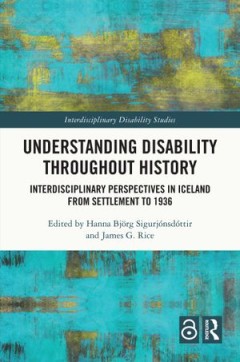
Understanding Disability Throughout History: Interdisciplinary Perspectives i…
Understanding Disability Throughout History explores seldom-heard voices from the past by studying the hidden lives of disabled people before the concept of disability existed culturally, socially and administratively. The book focuses on Iceland from the Age of Settlement, traditionally considered to have taken place from 874 to 930, until the 1936 Law on Social Security (Lög um almannatryggi…
- Edition
- -
- ISBN/ISSN
- 9781000486674
- Collation
- -
- Series Title
- -
- Call Number
- 362.4 UND u
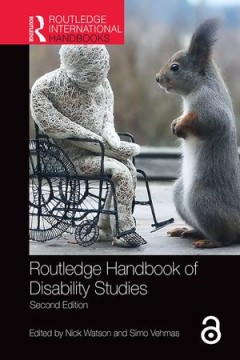
Routledge Handbook of Disability Studies
This fully revised and expanded second edition of the Routledge Handbook of Disability Studies takes a multidisciplinary approach to disability and provides an authoritative and up-to-date overview of the main issues in the field around the world today. Adopting an international perspective and arranged thematically, it surveys the state of the discipline, examining emerging and cutting-edge ar…
- Edition
- -
- ISBN/ISSN
- 9780429774102
- Collation
- -
- Series Title
- -
- Call Number
- 362.4 ROU r
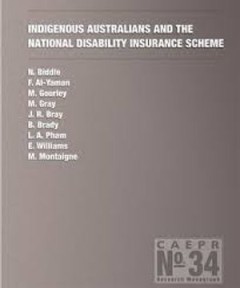
Indigenous Australians and the National Disability Insurance Scheme
The National Disability Insurance Scheme (NDIS) is one of the major policy innovations of the early 21st century in Australia, representing a new way of delivering services to people with a disability and those who care for them. It has the potential to transform the lives of hundreds of thousands of people, giving them greater certainty and control over their lives. There is a higher incidence…
- Edition
- -
- ISBN/ISSN
- 9781925021899
- Collation
- -
- Series Title
- -
- Call Number
- 362.4 IND i
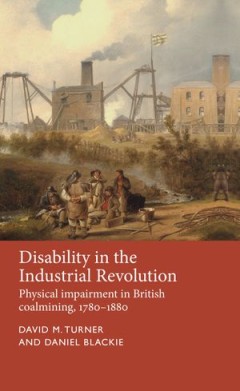
Disability in the Industrial Revolution
The Industrial Revolution produced injury, illness and disablement on a large scale and nowhere was this more visible than in coalmining. Disability in the Industrial Revolution sheds new light on the human cost of industrialisation by examining the lives and experiences of those disabled in a sector that was vital to Britain’s economic growth. Although it is often assumed that industrialisat…
- Edition
- -
- ISBN/ISSN
- 9781526125774
- Collation
- -
- Series Title
- -
- Call Number
- -
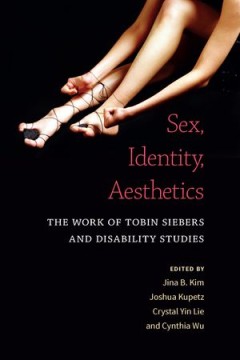
Sex, Identity, Aesthetics: The Work of Tobin Siebers and Disability Studies
The late Tobin Siebers was a pioneer of, and one of the most prominent thinkers in, the field of disability studies. His scholarship on sexual and intimate affiliations, the connections between structural location and coalitional politics, and the creative arts has shaped disability studies and continues to be widely cited. Sex, Identity, Aesthetics: The Work of Tobin Siebers and Disability S…
- Edition
- -
- ISBN/ISSN
- 9780472902477
- Collation
- -
- Series Title
- -
- Call Number
- 371.9 SEX s
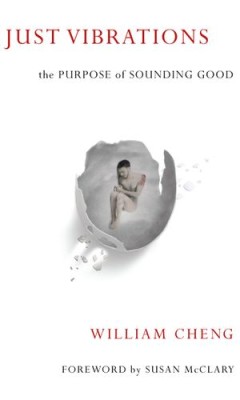
Just Vibrations: The Purpose of Sounding Good
Modern academic criticism bursts with what Eve Kosofsky Sedgwick once termed paranoid readings—interpretative feats that aim to prove a point, persuade an audience, and subtly denigrate anyone who disagrees. Driven by strategies of negation and suspicion, such rhetoric tends to drown out softer-spoken reparative efforts, which forego forceful argument in favor of ruminations on pleasure, love…
- Edition
- -
- ISBN/ISSN
- 9780472900565
- Collation
- -
- Series Title
- -
- Call Number
- 362.4 MCC j
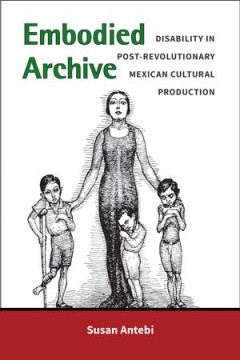
Embodied Archive: Disability in Post-Revolutionary Mexican Cultural Production
Embodied Archive focuses on perceptions of disability and racial difference in Mexico’s early post-revolutionary period, from the 1920s to the 1940s. In this period, Mexican state-sponsored institutions charged with the education and health of the population sought to strengthen and improve the future of the nation, and to forge a more racially homogeneous sense of collective identity and his…
- Edition
- -
- ISBN/ISSN
- 9780472902422
- Collation
- -
- Series Title
- -
- Call Number
- 362.4 ANT e
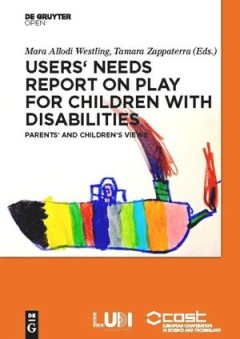
Users' Needs Report on Play for Children with Disabilities
The needs of children and parents about play when the child has a disability are explored by mean on surveys to disability associations and families were collected during 2016 in 30 countries by members of the EU COST LUDI network Play for children with disability.The users' needs concerning play for children with disabilities are also explored by mean of case studies at a country level, based …
- Edition
- -
- ISBN/ISSN
- 9783110537482
- Collation
- -
- Series Title
- -
- Call Number
- -
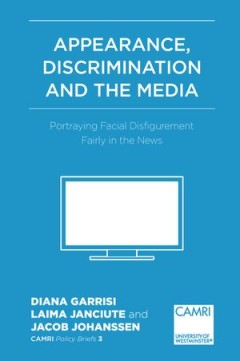
Appearance, Discrimination and the Media
The portrayal of disfigurement in the UK media must change. This policy brief is based on recent research that found a general negative and sensationalised attitude towards disfigurement in the media. Disfigurement is a condition that can affect anyone at any time in life regardless their social or demographic background due to accidents or health conditions or be congenital. In the UK, one in …
- Edition
- -
- ISBN/ISSN
- 9781912656233
- Collation
- -
- Series Title
- -
- Call Number
- -
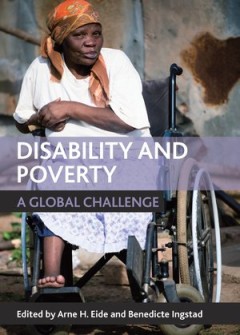
Disability and Poverty A Global Challenge
This book is about being disabled and being poor and the social, cultural and political processes that link these two aspects of living. Environmental barriers, limited access to services and discriminatory attitudes and practice are among key elements that drive disabled people into poverty and keep them there. 'Disability and poverty' explores the lived realities of people with disabilities f…
- Edition
- -
- ISBN/ISSN
- 9781847428851
- Collation
- -
- Series Title
- -
- Call Number
- -
 Computer Science, Information & General Works
Computer Science, Information & General Works  Philosophy & Psychology
Philosophy & Psychology  Religion
Religion  Social Sciences
Social Sciences  Language
Language  Pure Science
Pure Science  Applied Sciences
Applied Sciences  Art & Recreation
Art & Recreation  Literature
Literature  History & Geography
History & Geography